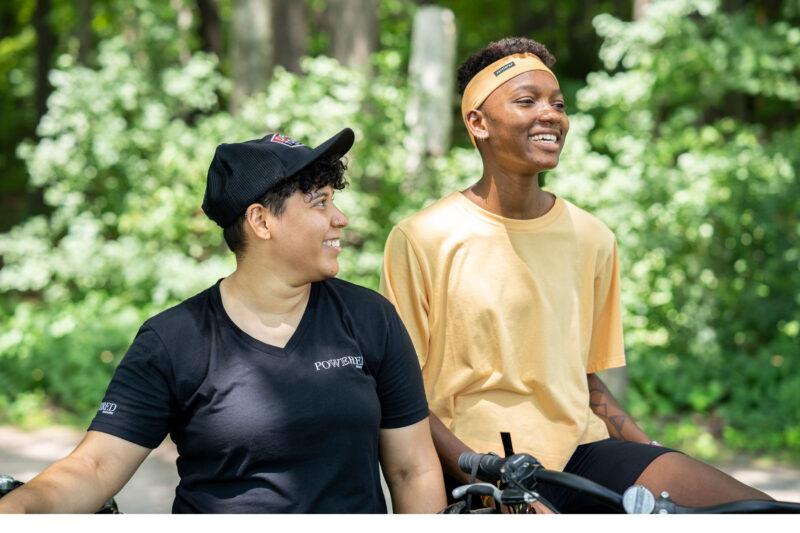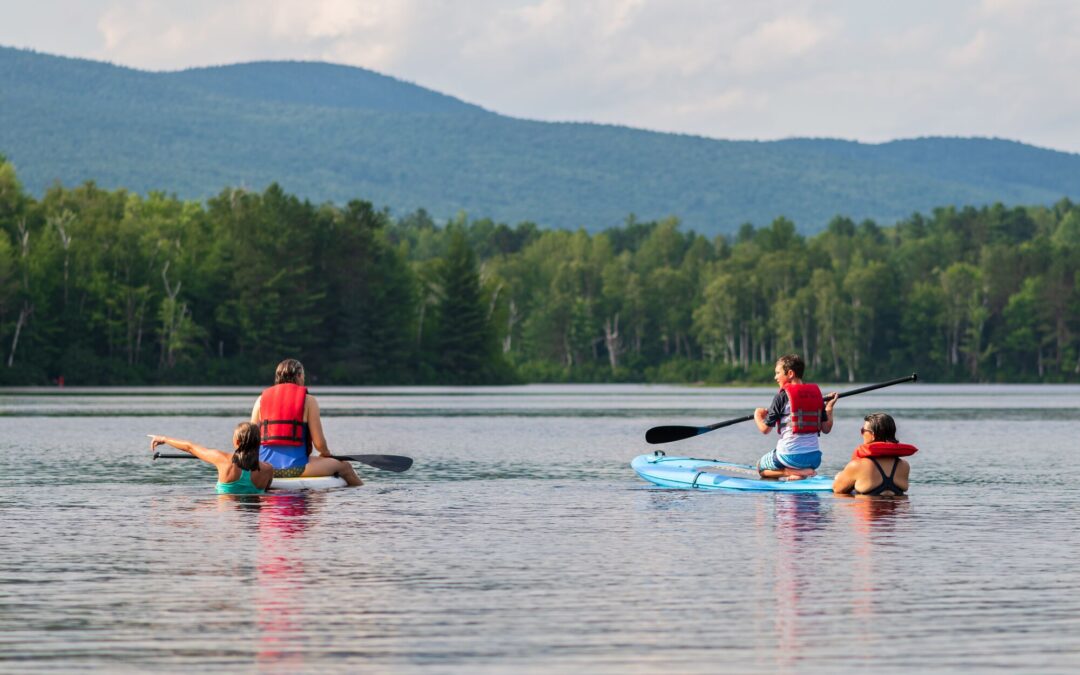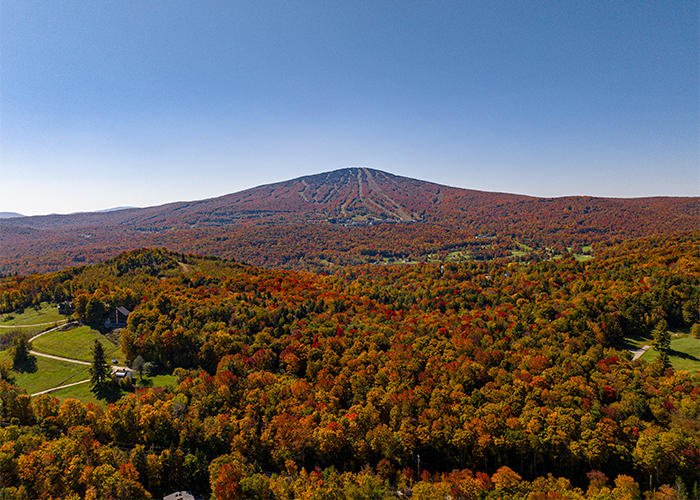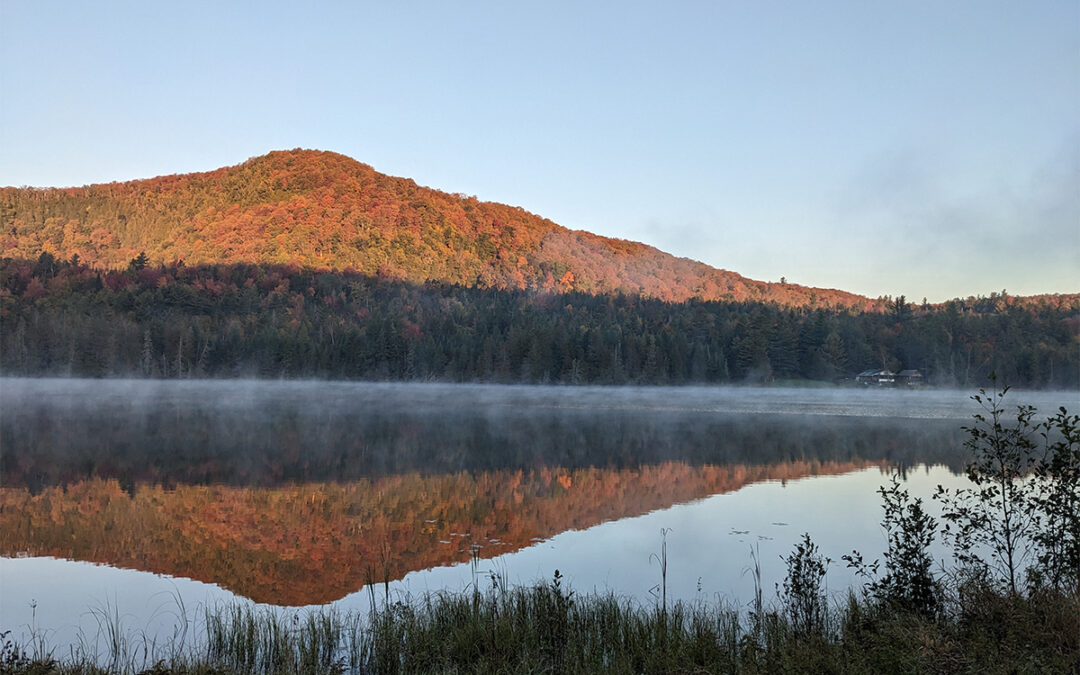By Jesse Anderson
When I sat down to write this blog, I pondered the question, “how do I share the enormous impact being outdoors as a black woman has had on my life?” As you may imagine, it is hard to do so, yet I embark on this storytelling journey to give you a glimpse of what such experiences mean to me.
The experience I chose to share is a nature day I experienced with Powered Magazine in Burlington, Vermont. When I got the email from Sung-Hee saying that we would be out biking, rock climbing, and hiking for the day, I immediately notified my supervisor at work that I would need the day off. The anticipation of spending the day outdoors with a small group of people within the Black, Indigenous, and People of Color (BIPOC) community encouraged me to drop everything to be a part of the experience. I was grateful to have the opportunity to be out in nature with such a warm and nurturing group of people.
Sometimes the fear of being harassed and targeted in public parks keeps people from being outdoors. Oftentimes, it’s difficult for people of color to be outdoors due to systems that were put in place in the past. There is a legitimate fear within the BIPOC community that is hard to get rid of without the tools or the environment to thrive. Speaking from personal experience, safety is a priority in dismantling the systematic fear of being outdoors for people of color. There is a tangible impact on the narrative communities form about BIPOC folks in the outdoors. Due to this, you don’t see many of us outdoors, rock climbing, biking, hiking, or more.
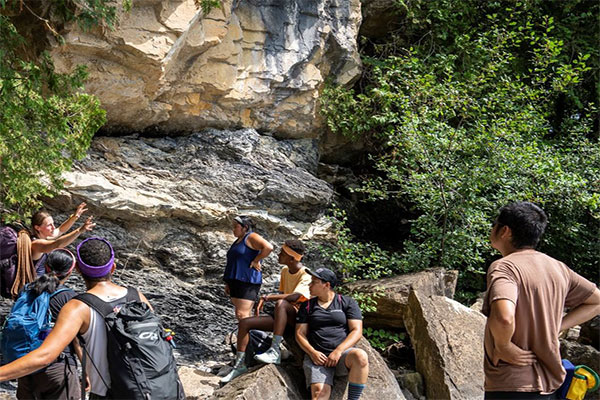
For example, prior to attending events offered by Powered Magazine, I didn’t see myself represented in the outdoors. Therefore, I didn’t make an effort to be outside even though I knew there were health benefits to being active outdoors. The reason why the nature day experience meant a lot to me was that I was a part of creating representation for BIPOC folks in the outdoors. I felt like I was making a difference by being myself with community in nature. Powered Magazine gives BIPOC folks the opportunity to experience the outdoors in a different way and try new things. I have been able to find new joy in different activities I have never tried before and created new narratives for myself and others by being in nature more often. When I went rock climbing, I was genuinely scared to be climbing an actual rock. I’d never rock climbed before this experience, nor did I have the tools to even try this. I was only able to do this because there was a group behind me cheering me on. I felt empowered knowing that those cheering me on saw that I had the strength to reach the top.
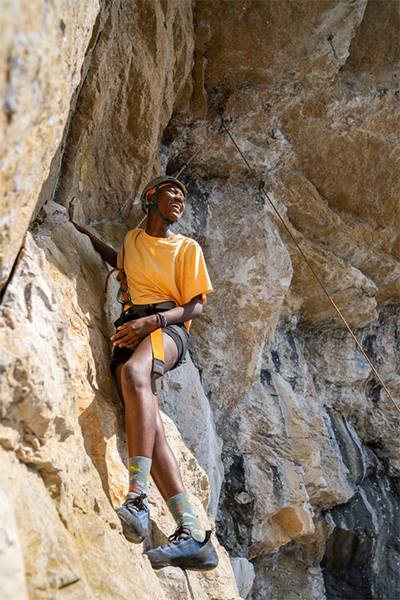
In my everyday life, I don’t usually get the chance to be outdoors with people who look like me. I’m often finding myself having to mold into a “white world.” From problem-solving at work to supporting my family when they need help, I often find it hard to put myself and my wellbeing first. This is why being in nature and being able to pause and reflect inwards means a lot to me. Slowing down expands my capacity to feel my emotions, see the good around me, and foster joy from within. I appreciate those within the community who go out of their way to see how we are doing. Powered Magazine events are not just about BIPOC being in the outdoors but also forming genuine, caring connections with others. It isn’t just about showing up, it is about showing up and being your authentic self. They care about your goals, your dreams, and they want to help you get there. At the event, I spoke with Sung-Hee about my goals. She took the time to create an opportunity for me to use my skills and knowledge to uplift other BIPOC folks in the community through Powered, just as she did for me.
Most of the events Powered puts together are an affinity space for BIPOC folks. Being in a space such as this is very important because it gives us a place to be in communion with each other in a safe and nurturing environment. This is a place where we can be our true authentic selves. It makes a big difference because we are in a community and feel more comfortable sharing. There is less time spent worrying about having an uncomfortable conversation with someone that might lead to harm. To just be able to turn around and know that the person beside me knows where I am coming from is very important. To share the same experience and enjoy the outdoors with each other is amazing, but it is an added bonus to know you won’t get hurt. I am able to nurture this part of me that strives for a break and just be in a space where no one is trying to get something out of me.
Community wellbeing is a key element to overall wellbeing. If you feel like you belong in your community, that is the key element to your own wellbeing! When we were out for our day of hiking, I remember having deep and meaningful conversations with my peers about what the experience meant for them. We all go into nature with different intentions. Some people enter nature with the intention of finding peace, others are there for an adventure, some seek ways to get outside of their comfort zone, and others want to break the cycle of their everyday lives. It’s important to have people by your side where you belong.
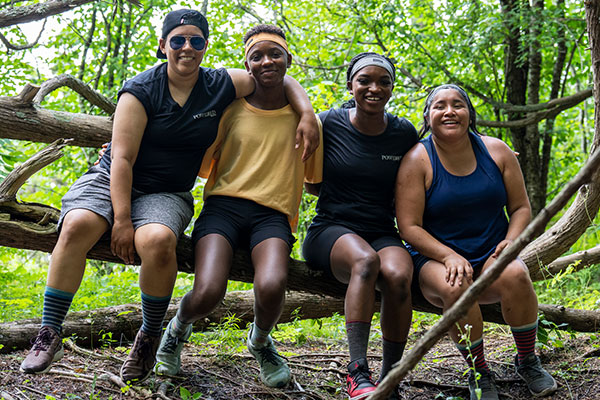
For BIPOC, it has been difficult to find a space to feel this way. In most spaces, we find ourselves changing in order to fit their spaces. That’s why the outdoors is so special to people like me. Feeling psychologically and physically safe in the outdoors is essential for sustaining a healthy relationship with nature. The outdoors has always been able to pour its energy back into people and replenish our mental wellbeing. Feeling connected and grounded is important for our community in order to continue creating more space for BIPOC folks in the outdoors. Therefore, the more stories and narratives that we share on an individual and group level, the more chances there are of ripple effects and narrative shifts that lead more people to become curious about the great outdoors.
About the series
This blog was created in partnership with Powered Magazine and the Vermont Department of Tourism and Marketing. Powered Magazine strives to build equitable outdoors for all and is dedicated to increasing access and creating opportunities to engage in the outdoors, to improve the mental, physical, and social health of Black, Indigenous, and People of Color. Jessie Anderson, a Liberian native now residing in South Burlington, Vermont, advocates for building positive outdoor relationships with community members. As a recent Saint Michael’s College graduate, she works with organizations using strength-based approaches to foster cultures of wellbeing and thriving communities. Her passion for engaging with other cultures, learning, and spending time outdoors fuels her desire to connect with and assist others. Jessie serves as a Program Facilitator for Powered Magazine, supporting the creation of equitable outdoor spaces and expanding participation in outdoor recreation for communities of color.
